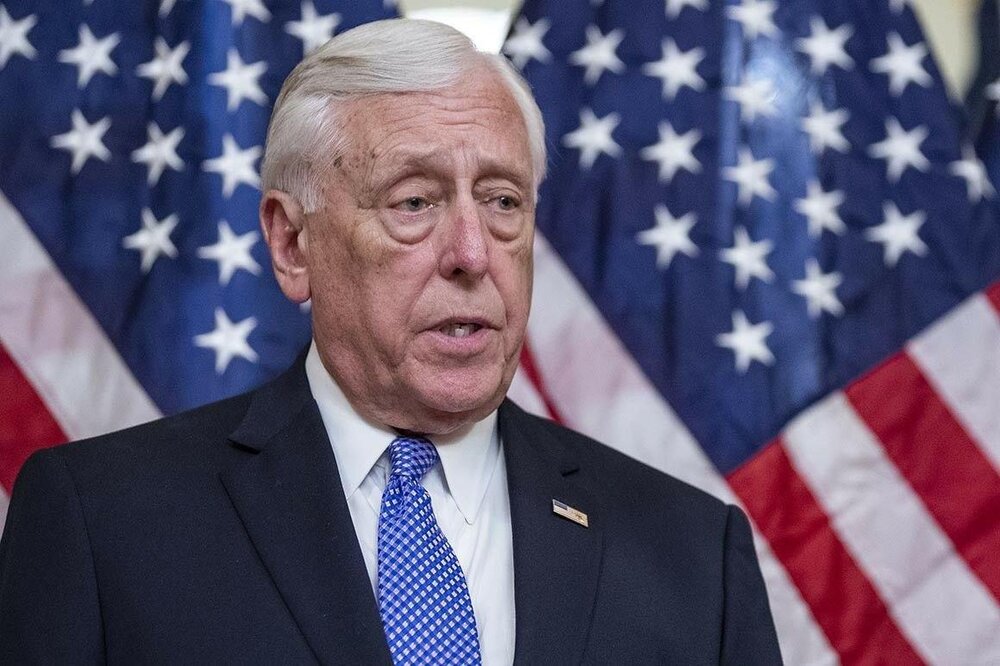U.S. House to vote soon to limit Trump’s war powers with Iran: Rep. Hoyer

U.S. House Majority Leader Steny Hoyer said on Tuesday that the House will vote within weeks to limit U.S. President Donald Trump’s war powers with Iran.
“Whether we'll do it next week, the following week or the next work session, we’re still working on it. But I want that to come to the floor,” The Hill quoted Hoyer as saying.
Hoyer said he supports the war powers legislation that passed the Senate last month and expects to bring it to the floor “in the near future.”
The U.S. Senate passed legislation on February 13 to limit Trump’s ability to wage war against Iran.
According to AP, the measure, authored by Sen. Tim Kaine, D-Va., says Trump must win approval from Congress before engaging in further military action against Iran.
Eight of Trump’s fellow Republicans joined Democrats to pass the war powers resolution by 55-45. The measure would require Trump to remove U.S. troops engaged in hostilities against Iran unless Congress declares war or passes a specific authorization for the use of military force, Reuters reported.
The U.S. House of Representatives passed two pieces of legislation on January 30, seeking to limit Trump’s authority to go to war with Iran.
“The Constitution gives Congress, not the president, the power to declare war. And with President Trump taking steps toward dangerous conflict with Iran - without any consultation with Congress - we need to reassert the responsibility given to us,” Democratic Representative Eliot Engel, chairman of the Foreign Affairs Committee, said in support of the legislation.
In an interview with Geo News published on January 25, Engel criticized Trump for beating drums of war against Iran.
“The United States, frankly, has been involved in too many wars in the last twenty years. And, I think it’s time to back off and not have perpetual war,” he said.
He also called the January 3 assassination of General Qassem Soleimani in a drone strike in Baghdad “an ill-advised action”.
U.S. House Speaker Nancy Pelosi tweeted on February 14, “Today, with this strong War Powers Resolution, the Senate is joining the House in honoring our responsibility: keeping the American people safe. The Congress and the American people know we cannot afford war.”
Trump did not inform Congress about the drone strike until after it took place and then, according to many lawmakers, his administration held back too much information about the reason for the strike and its legal justification.
In a retaliatory move, Iran fired dozens of ballistic missiles at a major U.S. military base in Iraq on January 8.
Many members of Congress, including some Republicans, have been pushing the administration for more information about the assassination of Soleimani, Reuters reported.
The House Foreign Affairs Committee has slammed Trump’s justification for assassinating Soleimani.
In a tweet on February 18, the House Committee said the Trump administration “continues to change their story”.
“There was a lack of a specific, immediate threat to U.S. forces or other personnel that would merit the killing of Soleimani,” the committee said.
It added, “We look forward to @SecPompeo’s public testimony before the committee and American people February 28th.”
The Trump administration has made several contradicting statements as it explains why the U.S. assassinated Soleimani.
In a legally-mandated memo, the White House told Congress, “The purposes of this action were to protect United States personnel, to deter Iran from conducting or supporting further attacks against United States forces and interests.”
Although the notice references that the threat of “further attack existed”, the memo makes no mention and gives no evidence of the “imminent attacks” the Trump administration initially gave as a justification for killing Soleimani.
In another tweet on February 15, the House committee said, “The White House’s official report directly contradicts the President’s false assertion that he attacked Iran to prevent an imminent attack against United States personnel and embassies.”
In an interview with CNN aired on February 15, veteran U.S. diplomat Joseph Nye said Trump revoked an executive order signed by President Gerald Ford by directing the Pentagon to assassinate Soleimani.
“By assassinating a high official in a third country when you are not at war, you are revoking what Gerald Ford had done after Vietnam which says we are not to get into the business of assassination. I don’t think we really want to drop that norm,” Nye said.
“What happens for example if Secretary [Mike] Pompeo goes to Baghdad and somebody shoots him? We’d have no right to complain if we’ve shot Soleimani.”
He noted, “We gave up assassination after the Vietnam war after Gerald Ford signed an executive order. I am not sure that Trump thought through what it means if you drop that moral principle.”
NA/PA
